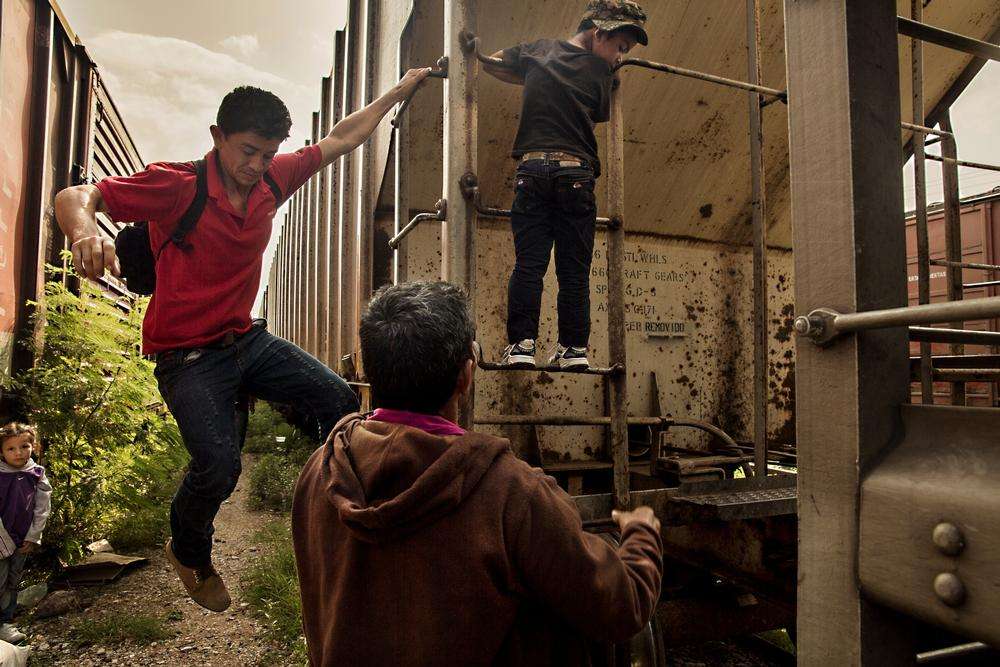Venezuelan Migrant’s Difficult Journey to U.S. Amid Policy Shifts
When Venezuelan migrant, Julio Cesar Requena stepped onto U.S. soil, crossing the McAllen-Hidalgo International Bridge, it felt like a divine intervention answering his prayers. The waiting phase was a grueling four-month period during which trust in a higher power kept his hope buoyant. Little did he anticipate the severity of the overwhelming journey that lay ahead. Requena’s group, that included six others, were victim to robbery and abduction, an experience that escalated their predicament beyond imagination.
The chilling numbness of a desolate Reynosa street served as their harsh bed for one night. Out of the seven, only Requena and another comrade were callously abandoned there. Unfortunately, the fates of the remaining five members of their group remained unknown to him. This wasn’t an isolated incident, as many like Reynato Berenguer, another migrant originally from Cuba, also shared tales of surviving threats and violence in Mexico while awaiting an asylum hearing appointment.
Berenguer’s anticipation was shrouded in uncertainty. Would the awaited day of the hearing ever come while his loved ones continued to bear the pangs of unease and risk in Mexico? The uncertainty was a constant partner. The moment Requena had his first legal interaction on American land, relief washed over him. Nevertheless, the lingering thought about the many still trapped in Mexico gnawed at his elation.
Berenguer, who had just received approval to embrace the South Texas land as his temporary home, loaded his family’s luggage into a taxi in McAllen. With a heavy heart, he expressed concern about those left behind. Many good people were still trapped in Mexico waiting for an opportunity to traverse the border legally. Countless had been victims of horrible crimes.
The echoes of change resonated far and wide across the expanse of the Texas border upon Inauguration Day. A stark shift in immigration and border security policies were promulgated. However, it wasn’t met with shock, but rather disappointment among the migrant community and a sense of victory for the advocates of the ‘Make America Great Again’ (MAGA) campaign. President Trump swiftly put a halt to the sole legal window available to migrants seeking asylum, leaving congregations of migrants at a stalemate.
The border communities were grappling with the after-effects of the surge in migrant arrivals. Witnessing this, the residents of South Texas found a reason to cheer and celebrate the dawn of Trump’s presidency at a local McAllen hotel inauguration gala. Supporters professed optimism for a more practical border resolution with the newly instituted presidency.
Mayor Javier Villalobos of McAllen, a participant in the inauguration festivities, remarked that the election fervor had concluded and it was time for constructive shifts, particularly concerning the 1,254-mile-long southern border of Texas. Every person involved in governing the nation, including the new administration and Congress, needed to step up their game to recalibrate the disoriented immigration systems, according to him.
Villalobos stressed that the alignment of the immigration mechanism with the rightful directions was overdue for the last eight years. The persisitent standstill preventing the two sides from coming together and addressing the nagging issues had become a major handicap in accomplishing the much-needed progress.
Samples of hopeful migratory individuals like Joever Freites, another Venezuelan migrant fortunate to reach the United States before Trump assumed command, were starting to cope with the fresh chapter of their lives in McAllen. Freites was strategizing for her next course of action to initiate the asylum application process. Nonetheless, she held little hope for a warmer reception to the influx of migrants.
Freites was skeptical about the likely decrease in aide and support for immigrants in response to the change in leadership to President Trump. The frequency of migrant arrivals at migrant aid centers reflected the impacted sentiment among the migrant populace. Numbers varied widely from 600 a day to as meager as 150 a day.
The dwindling visitor count was indicative of effective transmission of the impending comprehensive immigration policy overhaul to the migrant community. Some resorted to using the available temporary accommodation while others decided to briefly pause before setting on their end journey.
Fluctuations in the visitor count became an implicit barometer of the mutual sentiments. Pimentel, who had spent a decade at a center hosting migrants through various administrations, spoke from her experience. The visible sense of fear among the incoming migrant visitors was palpable. The potential loss of this safety net dealt a massive blow to the vulnerable families.
Pimentel envisioned the faith-based assistance center maintaining its mission regardless of the high tides of change. She reinforced the necessity of community support to keep the flame of assistance burning. She emphasized the exaggeration around mass migration largely found in political discussions.
Pimentel argued that the underpinning reality was different from the painted political narratives. Her decade-long experience showed a community united to ensure safety. She countered the prevailing view labeling immigrants as dangerous invaders.
Villalobos, on the other hand, believed that the discussion around immigration wasn’t exclusive to presidential campaigns. It was, and must continue to be, a matter of prime federal concern. He also admired the virtues of a pragmatic approach towards border policies given his unique position in an expanding border city.
Villalobos argued that while America needed immigrants, it also required capable strategies to stem the unregulated migrant flow between entry ports. He was in support of providing the necessary workforce to keep the nation’s economic machinery functioning smoothly.

